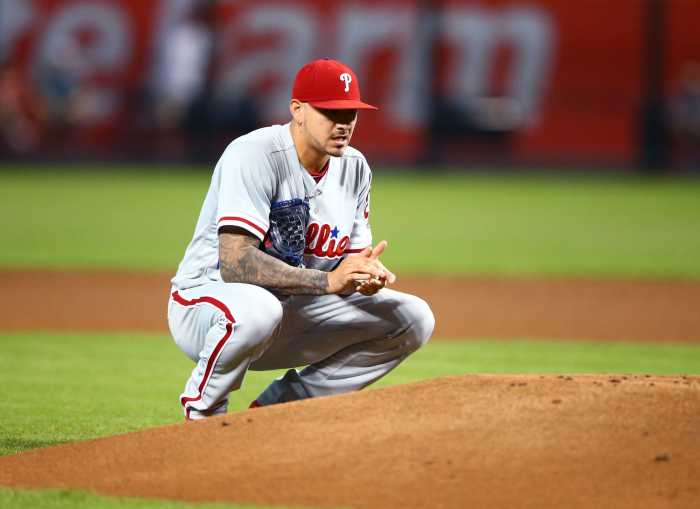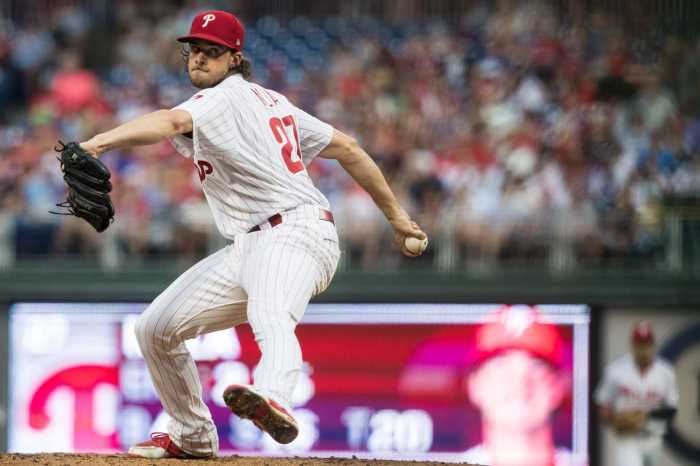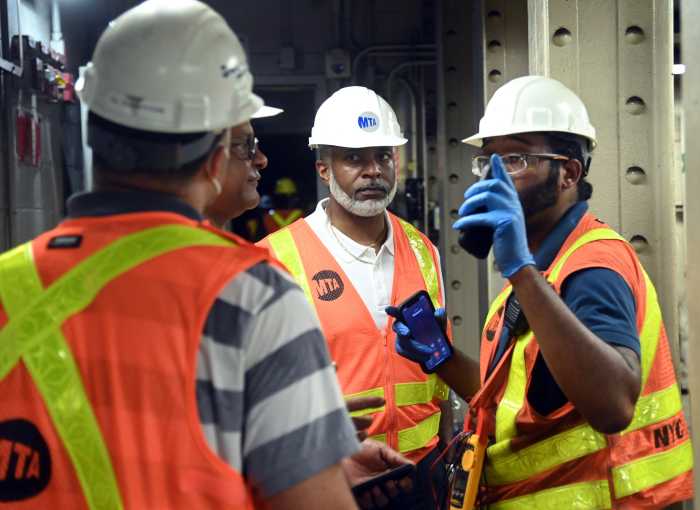Three months in and the Phillies have yet to make any significant improvements this offseason. But why has this offseason been so slow?
When the Phillies’ offseason began in October, fans knew that the outlook was grim. Between the many holes to fill on the team and the rise of literally every other team in the NL East, the Phillies are facing an uphill battle. That negative outlook was only exacerbated when news broke that the Phillies allegedly lost $2 billion due to COVID-19. (Okay, the actual number was $145 million, but I digress.)
But meanwhile, there has been a glimmer of hope in all of this that the Phillies would turn things around. That hope began when Matt Klentak stepped down as Phillies’ general manager. While the Phillies’ front office made it clear that they were in no rush to find a replacement, fans were nonetheless optimistic that an announcement would come. Two months later, it did. Seeminingly out of left field, news broke that Dave Dombrowski would become the Phillies’ first President of Baseball Operations. Not even two weeks later, Sam Fuld was promoted to general manager. With Dombrowksi and Fuld at the command, it seemed as though the Phillies may have been ready to strike.
And while the Phillies made a savvy move trading for Jose Alvarez, that is only one minor move. Meanwhile, the San Diego Padres pulled off a trading blitz, acquiring ace pitchers Blake Snell and Yu Darvish. The Phillies have a lot more moves to make if they are to compete this year, which begs the question: what are they waiting for?
Today, we’re going to take a look at the factors that are causing this slow off-season, both within the Phillies and league-wide.
Phillies’ Internal Explanations
Dave Dombrowski Is Still Settling In
Dave Dombrowski was hired as the Phillies’ President of Baseball Operations on December 11th. And while the longtime executive has held roles in baseball since 1978, there is certainly an adjustment period with every new role. Dombrowski’s first priority was learning more about the personnel he would be working with on an everyday basis.
“What i have done is call as many people as possible in the organization, and talk to them about their roles, what their thoughts are, their feelings about the organization, and responsibilities”
Dave Dombrowski during the Sam Fuld Introductory Press Conference
But Dombrowski not only needs to learn about his front office, but the players within the organization as well. It would be irresponsible of Dombrowksi to jump into a team he does not fully know yet and to make moves automatically. He has to learn about not only the big league roster, but the team’s minor leaguers and prospects as well. Remember, he hasn’t been here for a month yet. Once Dombrowksi knows the organization completely, he can choose the direction he deems fit moving forward.
Luxury Tax Space
Phillies are cheap- and have a lot to do
The Phillies have a laundry list of items they need to accomplish if they are to compete. They need to:
- Re-sign J.T. Realmuto
- Sign a fifth starting pitcher
- Fix the Bullpen
- Re-sign Didi Gregorious or figure out the Middle Infield
- Realign the Outfield
- FIX THE BULLPEN!!!
And the Phillies only have $60 million in luxury tax space to do so. While that may seem like a lot, you can assume Realmuto gets at least a third of the cash remaining. That leaves only $40 million or so to do the rest. And while there are certainly some in-house solutions (utilize Segura/Kingery in the infield, use McCutchen/Haseley/Moniak/Quinn in the outfield), its a complicated calculation regardless.
League-Wide Issues
No Winter Meetings for new Phillies’ front office to attend
A minor reason compared to the rest of this list, the cancellation of the 2020 Baseball Winter Meetings reduced team’s opportunities to deal face-to-face. In case you have never been to the Winter Meetings (I’ve had the pleasure twice), all of Major and Minor League Baseball gathers for a week within one city to organize and prepare for the upcoming season. While that means meetings and seminars for many, it allows agents, GM’s, and executives the chance to meet discreetly to discuss potential trades and/or signings.
While there were virtual Winter Meetings this year… nothing happened. Each year’s Winter Meetings are different, but not having the opportunity for the different parties to at least posture for power has certainly made things slower league-wide.
COVID-Related Losses
Regardless of how you cut it, Major League Baseball and all 30 of its teams lost money in 2020. The COVID-19 pandemic has caused a majority of businesses (Amazon excluded) to take losses in 2020. At the end of the day, Major League Baseball is a business, and was certainly affected. Now, each owner has faced difficult decisions regarding their workforce, with jobs having been cut across the entire industry.
Owners across the league could realistically handle a year’s worth of losses and rebound. This offseason has proven, however, that they would rather recoup their losses by cutting costs than maximizing revenue.
How this has manifested is an absolute standstill across the free agent market. While some players are taking what they can and cutting deals where they can, top free agents are not moving. Free agents like Trevor Bauer and J.T. Realmuto know their value and are waiting for teams to meet their demands. Ownership, meanwhile, are waiting the players out, hoping the players drop down to their level.
And the players have noticed.
This Isn’t a New Issue
Truth be told, this posturing between players and owners has been happening for a while. Bryce Harper didn’t sign with the Phillies until February 28th in 2019. Major League Baseball has, until 2020, been trending upward yearly in revenue. And, while the owners would like to pocket the profits for themselves, the players want their share of the money as well.
The owners, of course, are unwilling to give more than they need to, creating a constant tension between the MLB and the MLBPA.
So now that there is a drop in revenue, owners league-wide are utilizing the excuse to not pay players this offseason. This is why there are so many erroneous reports inflating the losses teams took. Owners and executives are posturing to make players bend to their wills. Players and agents will do this as well, over-selling their value as best as they can.
This results in an MLB offseason that is sluggish in nature and is set up only to disappoint. Phillies fans everywhere would do well to buckle up for a long offseason. Small moves may occur at random, but the bigger name players may not sign until late February at this rate.
Mandatory Photo Credit: Brian Rothmuller/Icon Sportswire


























